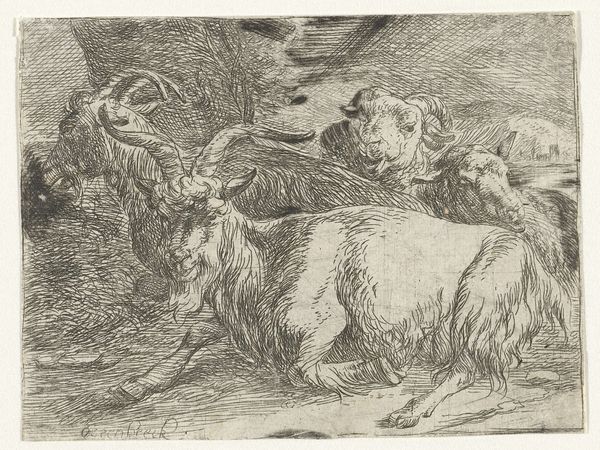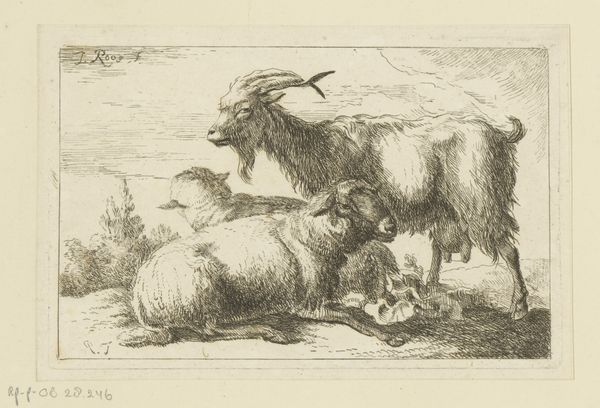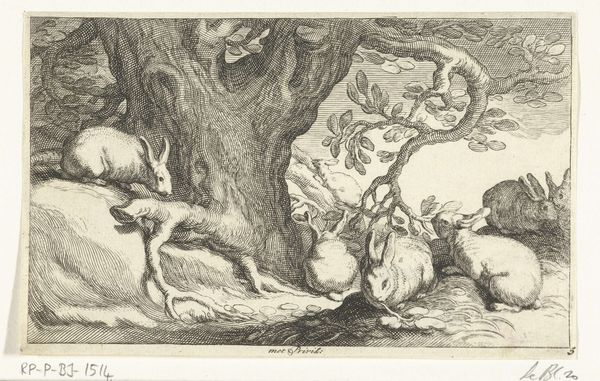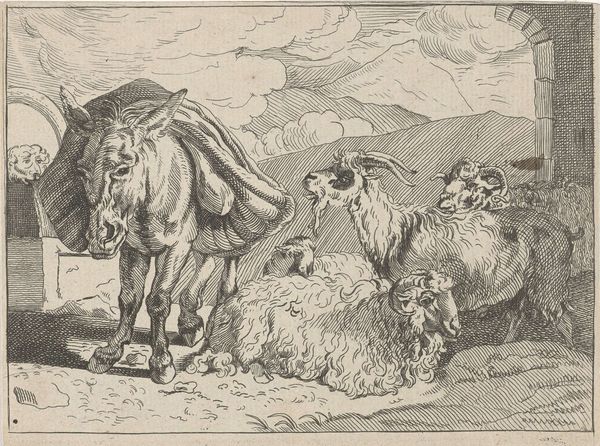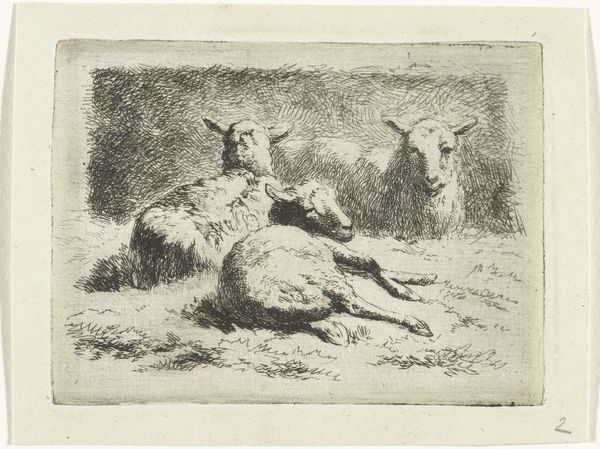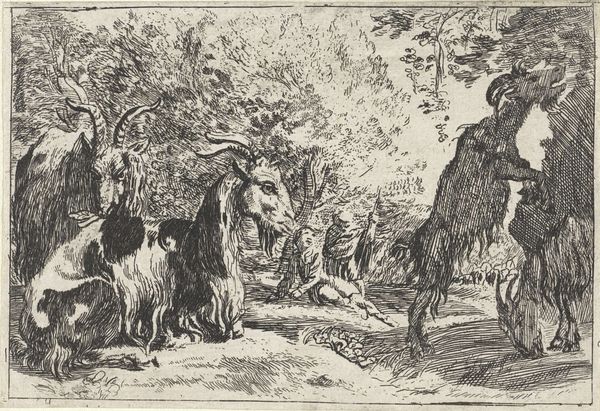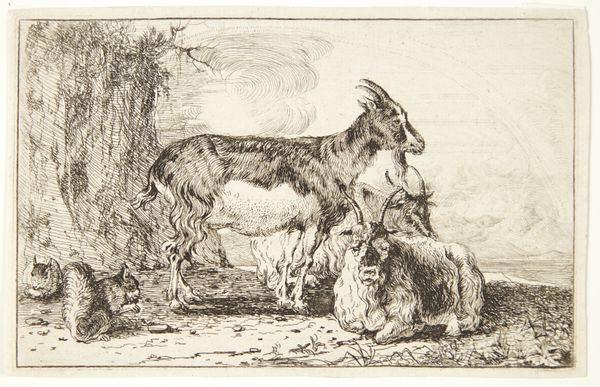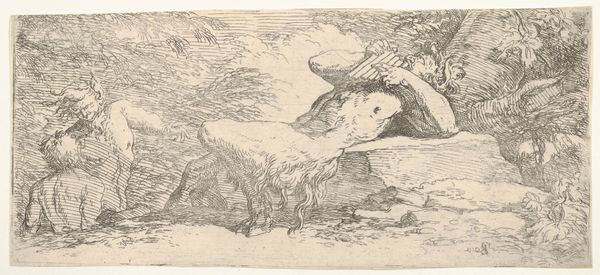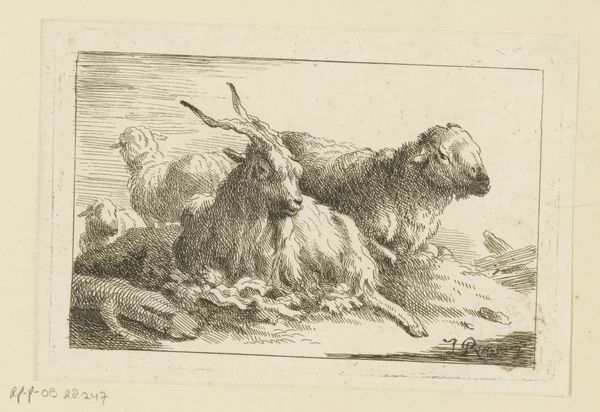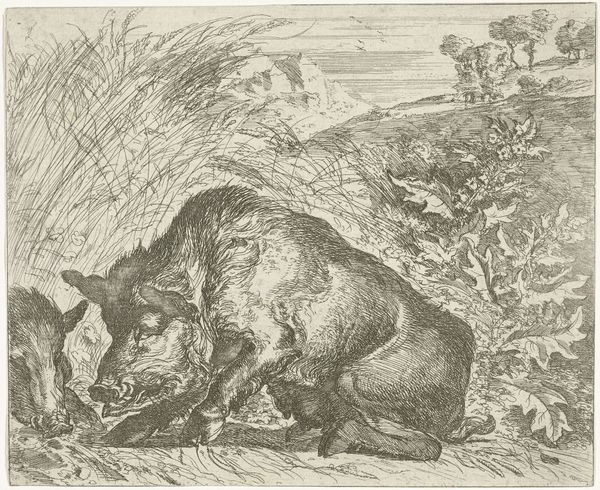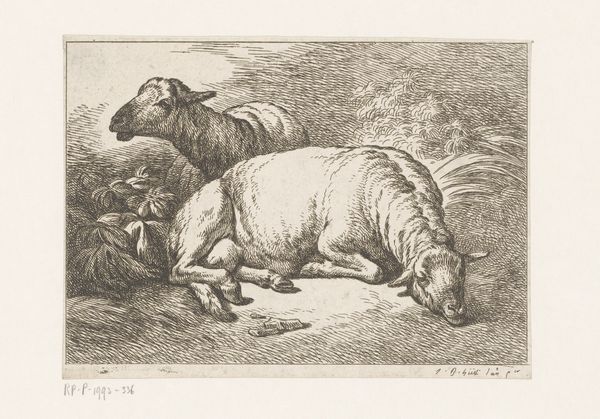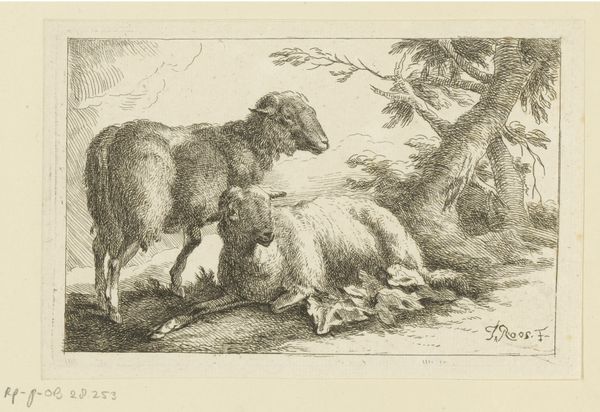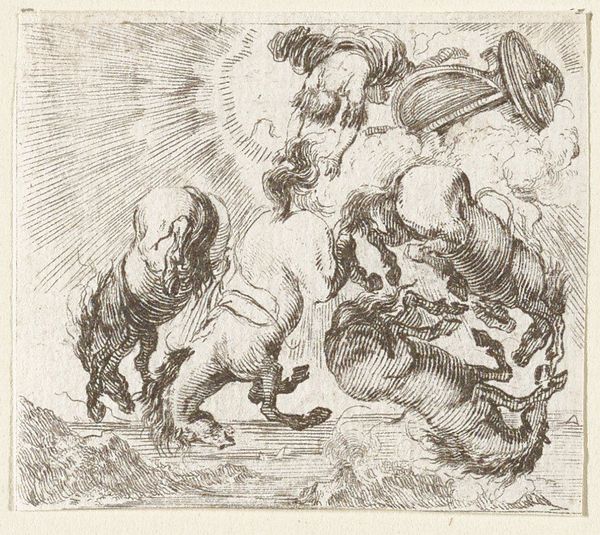
drawing, print, etching, dry-media, pencil, pen
#
pencil drawn
#
drawing
#
baroque
# print
#
pen sketch
#
etching
#
pencil sketch
#
old engraving style
#
landscape
#
dry-media
#
pencil drawing
#
pencil
#
pen
#
realism
Dimensions: height 77 mm, width 100 mm
Copyright: Rijks Museum: Open Domain
Curator: What a scene of pastoral tranquility! Editor: Yes, but that central goat looks like he’s just spotted trouble. Or maybe lunch. Curator: Let’s delve into Jan van Ossenbeeck’s world. This etching, likely crafted between 1647 and 1674, is titled "Two Goats and Two Sheep.” Notice the meticulous detail he renders with simple pen and ink. Editor: Pen and ink certainly, but there’s an interplay here beyond simple realism. Look at the dynamism created by those frantic lines—a stark contrast to the sedentary subjects, like a landscape caught mid-sketch, wrestling the essence from the paper itself. Curator: Ossenbeeck often intertwined detailed studies of animals with larger landscape scenes. This work gives us insight into his singular approach. The baroque landscape style certainly gave way for pieces that focus entirely on representing realistic and anatomically correct animals like this. Editor: Anatomy, yes, but it transcends clinical representation. Ossenbeeck exploits the etched line not just for structure but for a tonal depth. Light glances off woolly backs, the shadow suggesting both weight and an emotional gravity—something brooding in the fold of their repose. The semiotic interplay between light and dark feels loaded. Curator: There’s certainly an elegance, perhaps unintended, as a consequence of his technique, of how the animal forms merge with the landscape. They appear intrinsically part of it, not merely placed within. I imagine these sketches were part of larger preparations, and thus there isn’t a need to elevate the scene further than just showing how the subjects are integrated. Editor: Perhaps. Though, it’s this perceived incompleteness that invites our gaze deeper, doesn't it? A glimpse behind the curtain—into Ossenbeeck's process, a meditation on fleeting moments made tangible through art. It's beautiful and complex even in its unpolished, realistic delivery. Curator: It truly is remarkable. What appears as a quick study reveals layers of artistic intent, captured through the careful manipulation of a humble medium. Editor: Indeed. It’s pieces like this that show you can see volumes with line alone.
Comments
No comments
Be the first to comment and join the conversation on the ultimate creative platform.
